
Candida Martinelli's Italophile Site

Main
Page This family-friendly site celebrates Italian culture for the enjoyment of children and
adults. Site-Overview
One off
mysteries, dramas, suspense, crime, espionage, cozy books set in Italy,
or featuring a hyphenated Italian
Visit my
Mystery/Thriller Series set in Italy page My Two New Italophile Sites
Italophile Book Reviews offers personal views on many books that
might interest lovers of Italy. Authors and Publishers: I
review books set in Italy, or about Italy and Italian culture, or about
hyphenated Italian culture, and Ancient Rome. My site is family-friendly. Indie (Self)
published books, and small publishing houses are welcome. Contact:
info @ italophiles.com Italophile Books is
an Amazon.com linked shop that has only products Italophiles are sure to
love. Shop with no distractions! You can click through to
the full Amazon.com site at any time, keeping your shopping cart.
Checkout is through Amazon.com's usual secure system.
Historical
Novels set in Italy Suspense
/ Dramas set in Italy
The books featured here are thrillers:
detective-police-mystery, espionage and suspense. They're
all set in Italy for most of the story. Each book is linked via a click on the book cover, to Amazon.com's
page for the book. There you can find excerpts, sometimes links to the first chapter,
back cover text, and prices for new and used copies. Many of these books are available as paperbacks, so be sure to
check before deciding one's too expensive. This link goes directly to Amazon.com's Kindle page of Italy
Thrillers. Here's a classic by the master spy-writer
Eric Ambler. From a Reader's Review: It's the late 1930's and the European continent is poised on the
brink of war. British engineer Nicholas Marlow accepts a position in the
Milan office of a machine tool manufacturing company known as Spartacus.
Since Spartacus' products are used in the production of munitions,
Marlow has access to information of value to those engaged in espionage.
Cause for Alarm is an engaging spy novel that has a smooth narrative
flow. Moreover, Ambler's detailed knowledge of his subject matter is
quite apparent. A solid 4 stars for this early contribution to the
genre. Well worth reading.
From Publishers Weekly: "...what happens to ruined D.C.
powerbroker Joel Blackman, 52, when he's suddenly released from federal
prison after six years. ... Many want him dead—the Saudis, the
Israelis, especially the Chinese—because of his role in trying to sell
a global satellite spy system that would alter the world's balance of
power; that was what got Joel imprisoned, and the CIA hopes that whoever
kills him will clue them in to who may have access to the satellites.
Joel is relocated to Bologna..." John Grisham has since set a second novel in Italy. From School Library Journal: "Grade 7-10–Alex Rider, the
14-year-old spy and adventurer from Stormbreaker (2001), Point
Blank (2002), Skeleton Key (2003), and Eagle Strike
(2004, all Philomel), is back. While vacationing in Italy, he is
recruited by the deadliest terrorist organization in the world, Scorpia..." From School Library Journal: "As FBI Special Agent
Pendergast immerses himself in the investigation of an art critic's
bizarre murder, he conjures up clues pointing to the Devil as the
culprit. After several killings in the same ghastly manner, similar
clues are found. Pendergast teams up with Police Officer Vincent
D'Agosta, with whom he had worked in The Relic (St. Martin's,
1996), and they begin a lengthy, intense, and time-driven search for the
murderer..." From Booklist: "Forbes' latest departs from India, the
setting of her previous literary thrillers--Bombay Ice (1998) and
Fish, Blood and Bone (2001)--and moves to idyllic Urbino, Italy,
birthplace of Renaissance painter Raphael. Deftly exploring connections
between art, religion, and politics, Forbes layers her mystery with lush
imagery and palpable human drama. When the Raphael painting that she is
commissioned to work on is attacked..." From Amazon.com: "This massive thriller pits a scheming
prince of the Church who believes he was once Alexander the Great
against the Addison brothers--Harry, a Hollywood lawyer, and Danny, a
Vatican priest. It seems that Danny had the bad luck to hear another
cardinal's confession outlining a heinous plot to poison China's water
supply in order to win the Vatican bankers a multi-billion-dollar
contract to rebuild it..."
Bus 64 - Roma by Umberto Bartolomeo This collection of 48 short stories is by far the
best self-published book I have read to date. The quality of writing is
inspiring and on par with award-winning literary short-story
collections. The appeal for Italophiles is that the author brings Rome,
Italy, and Italians to life for the reader, with literary skill and a
deep understanding of the human heart. After just the first few paragraphs, I felt like I
was in strong, capable, literary arms. I love the conversational yet
authoritative tone, and all the local lore, history, humor, erudition,
psychological understanding, and heart that enrich the stories about
people, not caricatures, and about daily life in Rome. Have you read The Canterbury Tales, or
The Decameron? This is a modern-day version written with Kurt
Vonnegut-esque wit, with the characters mingling and showing their best
and worst sides to our omniscient narrator, and through him, to us. With Chekovian psychological subtlety, the author
helps us explore Rome's and the characters' sights, visitors, smells,
frailties, passions, sins, rigid thoughts, biases, bowels, dreams, sins,
goals and mortality. He exposes to us the characters' various world
views. There is much humor to lighten the tales that roam
"...Rome's video-game streets..." but it is the author's way with words,
his ability to turn a phrase, that is the greatest pleasure on this
journey from the Vatican to the Stazione Termini. Characters, once introduced in their own stories,
sometimes outside of the bus, return within stories about other
passengers. By the end of the collection, we have become part of a
small community of players, acting and interacting on the author's
mobile stage: Bus 64. Some themes connect the stories, such as the
recurring sense of time passing, eras changing, cultures clashing,
personalities exerting their uniqueness to the frustration of other
characters. If you enjoy reading quality, polished, moving,
expert, psychologically astute writing, then Bus 64 - Roma is the
book for you. Take your time with the stories. Embrace the diverse
characters. I promise you that by the end of the collection, you will
feel that you have been a passenger on Bus 64, and that you have met and
known several dozen Romans and visitors to Rome. Travel virtually to
the Caput Mundi. Please read my
full and illustrated review at Italophile Book Reviews.
Stella Mia by Rosanna Chiofalo Stella Mia is a novel written as a memoirs. All in
the present tense, the past and the distant past events recounted in the
book enjoy equal immediacy. A grown U.S. American daughter tells her
version of the events surrounding the departure of her Italian mother
back to Italy. When she discovers her mother's diary, the daughter and
the reader discover the mother's version of events. Astoria, New York's, first, second and third
generation Italian-Americans make up many of the characters in this
story. The other characters are Sicilian and Calabrian. The events
recounted occur in America and in Italy, in the near past and in the
distant past. This is so-called women's fiction, which I think is a
rather insulting category name. So I will describe this in more
traditional terms: a family drama. The mother's childhood in Italy is an excruciating
story to read. Physical and psychological abuse takes a toll on the
woman not just in the past, but throughout her whole life. It is a
relief to read of the happiness she finds, here and there, in her life.
But the overall feeling is that she is doomed from the start to suffer.
The story takes on the feel of a family saga when
the story of the past takes over. The visits to Astoria, New York, with
the grown daughter are fleeting. I think I enjoyed the last part of the
story the best, when the grown daughter meets her aged mother in Sicily,
and learns the rest of the story directly from her mother. There is, of
course, a heartwarming ending. I'm a bit older than the 42-year-old protagonist,
Julia, but I still think she is a childish woman. Her reactions to what
she learns about her mother feel like the reactions of a child, not a
grown woman. Perhaps that is the case these days: the perpetual
adolescents of America? I like to think that her experience in this
book will make her a real grown woman. There are recipes at the end of the book, and a
Question & Answer section with the author. Reading clubs are provided
questions to accompany Stella Mia. The reader is told about the
author's other books, and we learn that some of the characters in Stella
Mia appear in the other books. Please visit my
full and illustrated review at Italophile Book Reviews. The author has three books out that may interest
Italophiles.
Tempesta's Dream by Vincent B. "Chip" LoCoco The Tempesta of the title is Giovanni Tempesta, a
twenty-five-year-old Italian man living in 1979 in Milan, Italy.
Giovanni dreams of becoming a world-class opera tenor, but he earns a
living as a clerk by day, and an opera-café singer by night. The Prologue explains how Giovanni came to discover
opera: through his father, a consummate romantic and opera aficionado.
Franco Tempesta explains to his young son how opera is romance and raw
emotion put to poetry and music. Opera also touches how the man teaches
his son about love. Without realizing it, Franco rears his son to be
something of a throwback to an earlier idea of male-female relations.
That formal, respectful attitude to women, love, and relationships was
out of place even in 1979. Giovanni has a sweetness and intensity about him,
so we can almost forgive his following his love-at-first-sight woman
home. Giovanni is, as the author says: "...a passionate romantic
living in a very unromantic world." And when Giovanni serenades the
woman: "He was a throwback to a lady's old romantic notion of how a man
should act." Falling in love pushes Giovanni to pursue his dream
with more conviction. With ups and downs, lessons and sudden lesions,
successes and failures, we follow Giovanni's progress to his ultimate
success. The satisfying, joyous ending has a truly operatic feel to it,
musically, situationally and emotionally. It is a big-opera finish. A few years back there was a novel written for
young adults that had a father teaching his daughter about the history
of philosophy. Many adults read the book for the easy-to-grasp
explanations. Tempesta's Dream has the same feel to it, but for
a history of opera. The book's coyness about sex makes it a suitable
book for both adults and young-adults. The opera history and
entertaining anecdotes that Giovanni's teacher, Alfredo, shares with his
eager student make learning easy for the reader, too. The book is attractively presented, well-edited,
and offered in various formats, including an audio book. The omniscient
narrative prose is not always the smoothest it could be, and the dialog
can be stilted at times, but the directness of the prose suits direct
and single-minded Giovanni Tempesta, and in the end, this is Giovanni's
story. The author brings opera to life on the page, which
he achieves through the use of the libretto texts, and rich descriptions
of the music and of the emotions the music creates. True to the opera it honors, the book is full of
strong emotions, heart, tears, love, ambition, friendship and an
underlying decency. I enjoyed it and it had me turning to my opera
recordings, which is always a good thing! Please read my
full and illustrated review at Italophile Book Reviews.
Botticelli's Bastard by Stephen Maitland-Lewis The novel Botticelli's Bastard is hard to
categorize. It is part farce, historical novel, paranormal novel, love
story, mystery, and drama. All the parts somehow come together to
create a satisfying whole. The whole is the story of Giovanni Fabrizzi,
an Anglo-Italian art restorer living in London, who inherits a talking
Italian Renaissance portrait painting. What the man in the painting has
to tell Giovanni is often disturbing. The changes that the painting makes in Giovanni's
life are, at first, mainly comic, with a fun jaunt through history. But
halfway through the book, the story takes a decidedly darker turn,
leading to a bittersweet but satisfying ending. Wealthy Giovanni is not the most sympathetic of
characters. But the life of a first generation Anglo-Italian in London
was enough to keep me reading (it was enough for me to request a
review-copy). True to his cultural upbringing, Giovanni seeks out human
contact and a sense of community, as well as treats from Italy, like
good food, coffee and gossipy news. Most of the humor in the story comes from the
interaction between Giovanni and the man in the painting, a painting
Giovanni inherited from his father. The family connection is key to the
story, and if you want to really enjoy the story, I would suggest you
avoid reading the official book description, since it contains many
spoilers. The author's prose is straight-forward, clear and a
pleasure to read. The book is well-edited (except for the de' Medici
error!). The narration is third-person limited, letting us into
Giovanni's head. Botticelli's Bastard is an enjoyable mystery
about a amateur detective who, with the help of the supernatural,
discovers some dark secrets about his own family. Please read my
full and illustrated review at Italophile Book Reviews.
Mister Gregory by Sveva Casati Modignani Mister Gregory is translated from the
Italian. It is a fictional biography of a man, from conception to his
eighty-fifth year. His life story is not told chronologically, but
shifting through time, sometimes introducing us to people in his late in
his life, and much later explaining later how they came to be in his
life. By the end of the book, the rich details create the
impression that the man actually lives, and that we might even know
him. The graceful prose reminds me of Alberto Moravia's spare, simple
prose that reads almost like poetry. The narrator knows all, and shares
enough of Mr. Gregory's life with us, so we know the man, in the end. The man has is mother's beauty and aristocratic
manner. But he is also in love with his mother. His possessive,
jealous love for his mother stops him ever having a healthy love affair
with a woman. He flits from one attachment to another, and only very
late in life does he come to terms with this. It is Mr. Gregory's view of women, gained through
his view of his mother, that lets him see things many other Italian men
do not see, such as their limited roles and the abuse they suffer not
just in body, but in spirit, too. Very late in life he comes to
understand how his mother escaped that fate. While well-written and richly imagined, I never
really connected with the main character, perhaps because I am not a
man. I suspect that I am not the target audience for this book. With
all the details of Mr. Gregory's major female conquests included in the
story, some quite suggestive, I think men might find the story more
interesting than I did. Please read my
full and illustrated review at
Italophile Book Reviews. Thriller,
adventure, a bit of romance and lots of science with a bit of fantasy
thrown in for fun, makes Split Symmetry an entertaining read. The author moves us between the perspectives of a
small group of characters to tell the story, which takes place all in
one day. The story follows hikers on the Gran Sasso peak in Italy, and
scientists under the mountain in the National Laboratories. The Italian
scientists are hoping for a ground-breaking discovery that day, having
to do with fluctuations in time. The author's prose is very descriptive, and
explains not just the actions and events, but much more. The
descriptions are very cinematic, bringing to the mind's eye images of
the mountain, the quickly changing weather, the glimpses of climbers,
the landslides. The adventure is greater than a mountain-climbing
adventure, which is exciting in its own right. There are the
earthquakes, the odd weather patterns, and the ripples in time for the
climbers to deal with. The author calls her book "a metaphysical
thriller", which is a good description, but I call the book an
"adventure". Even if you took away all the sci-fi and paranormal
elements, the adventure story would still make a very entertaining
book. It is well-written and well-edited, with a striking cover. Indie
publishing at its best! If you enjoy programs like The Twilight Zone,
Lost, X-Files, and Stephen King novels, you should enjoy
this novel. It is moody, atmospheric, and full of scary situations and
trippy science such as "the wilder possibilities of quantum mechanics".
It is a thrilling adventure with science and fiction combined expertly
to create a cinematic mind-bender. I enjoyed it! Please read my
full, illustrated review at Italophile Book Reviews. Warburg in Rome
is a historical novel that presents a litany of evil, shame and
suffering: the evil of sadism fueled by greed, hatred and lust; the
shame of those who could have acted against the evil sooner and more
forcefully; and the suffering of pretty much everyone. If you are
looking for a cheery read, do not look here. If you are looking for the
details of some of the history of WWII and post-WWII coming to life, at
least a bit, Warburg in Rome is a book that can offer you that. At the beginning of the book, David Warburg, the
main protagonist of Warburg in Rome, is given the War Refugee
Board's posting abroad, in Rome, Italy. Much of the early part of the
book consists of flashback accounts of the events that precede the
liberation of Rome. The post liberation period in Rome is where most of
the book's story takes place. The flashback sequences continue
throughout the book. Part One of Warburg in Rome describes Rome
in the immediate aftermath of its liberation, and we are given an idea
of the enormous scale of the relief effort needed to feed, house and
clothe the people left in war-ravaged Rome, Italy, only one of the many
European cities that had to cope with post war refugees. Part Two of Warburg in Rome deals with the
period after the Unconditional Surrender of Nazi Germany. Warburg
remains in Rome, despite the War Refugee Board being shut down. He
works to help Jews find refuge away from the societies that had turned
on them, away from the camps where they had been sent to die. While advertised as a "thriller", the book does not
move quickly enough, for me, to be really thrilling. The historical
subjects are all in the history books, especially the more recent
history books, so the outcomes are not in question, making the story
intrinsically un-thrilling. Warburg in Rome is a historical novel; there
is no doubt about that. The history is richly detailed and broadly
researched, letting us inside the U.S. government, the various
militaries, the Vatican, the various resistance movements, and the
multiple relief efforts. The characters are interesting but I never
connected with them, probably because my life is so different from their
lives. I could admire them and despise them, but caring for any one of
them was difficult. Most of the characters are so damaged that they
barely care for themselves. I found myself admiring those few characters who
had been battered into pulp by their war experiences, but who still
found the ability, or gift, to care enough to try to end the suffering
of others. The author makes it very clear that those persons' helping
of others provides the only salve that can begin the healing of the
wounds their souls have suffered. But even some of those characters'
compassion succumbs under the relentless evil to which they are
subjected or to which they see others subjected. Please read my
full review at
Italophile Book Reviews. Paradise of
the Devils is a translation from Italian of the novel Il paradiso dei
diavoli, about life in Naples, Italy. The book begins with a
Camorra hit-man who turns out to be the book's protagonist. The author
uses Homer's technique of pausing the action to recount a character's
history, then clicking "play" again to continue a scene, so prepare
yourself for a poetic journey through this well-written book. We meet plenty of other characters in the book,
including a psychopathic killer, a middle-school teacher who lives with
endless disappointments, a gang leader, a mother and her dreams for
wealth through her twelve-year-old daughter, that daughter grown up and
become a gangster's moll, a reporter. I must say that the book, that I received as a
review copy, feels less like a novel
and more like a collection of short stories. Some chapters could stand
on their own, just fine, in a literary magazine. Together, however, the
stories take the shape of the story of a guilt-wracked, damaged young
man, who becomes twisted by the lack of morals around him, and the easy
proximity of everyone in Naples to crime. All the way through the book there are ruminations
on lots of interesting things, but mostly on Naples and her people. We
learn about privileged children through the eyes of their poorly paid,
demoralized teacher. We learn a lot about Neapolitans. We learn about
Naples. Sometimes the inclusion of the characters' trips
through Naples read like a car's navigation system, but they do add
local flavor to the story. There is lots of local flavor in this story,
with detailed digressions about neighborhoods and local gangs and famous
characters. The author skillfully moves his characters back and
forth in time, revealing things about them at his own speed, and for his
own reasons. You just have to hang on and go for the ride. It is an
interesting ride, full of insights into human nature, and especially
insights into the complex, damaged Naples and her Neapolitans. Please visit my
Italophile Book
Reviews site for the
full, illustrated review.
Bringing It All Back Home (the name of a famous album by Bob Dylan)
is a translation from the original Italian of the award-winning novel
Riportando tutto a casa. It is a coming-of-age story that ends in
an "abyss of regret and sleepless nights" from which the narrator has
yet to escape, in the words of the narrator himself. The changes that took place in Italy during the
1980s are portrayed through the adult intellect of a man looking back
critically and sardonically at his and his country's Regan-era boom
years. The narrator comes to recognize the huge socio-economic and
moral divide that exists between his generation and his parents'
generation, and the marked moral lapses they both share. Being the '80s, and being about teenagers, three in
particular, there are lots of pop-culture references and song lyrics to
set the scenes, and to pad out the minimal plot. The young adults'
relationships with their parents are the main points of the book, along
with the relationships of the young people with each other, and with the
world at large. The author is clearly well-read and well-studied,
and he possesses a literary fluency, dotted with rich, associative,
poetic passages. There are times when the verbosity tends to excess and
showiness, and there are times when the line between art and vulgarity
is crossed. The translation is excellent, as is the editing. Often the
chapters left a nasty taste in my mouth, as if the author's and the
narrator's cynicism was contagious. The details of the novel suggest it
is partially autobiographical. I would imagine the appeal of the book would be
mainly to people who lived through the times depicted, who might want a
nostalgic look back through eyes that have become as wise as their own,
or wiser. All the major historical and social events are mentioned, and
'80s fashion is described throughout. As a non-Italian, but one who lived in Italy during
this period, the appeal is more of curiosity and as a means of seeing
Italy through the eyes of an extremely expressive local. If you are a
non-Italian, the appeal might be to see your 1980s from a different
angle, from the perspective that comes from life in Bari, Apulia. Please visit my
Italophile Book
Reviews site for the
full, illustrated review.
Gifts for Ugo is a historical novel set in a
fictional town in southern Italy, in the poorest village of the poorest
region of struggling Italy, Basilicata, circa 1908. This richly
imagined, soulful story is told in a direct, natural style that reminds
me of the late Morris L. West's beautiful prose in his novel The
Shoes of the Fisherman, and even more so in his novel The Devil's
Advocate. As with those novels, a reader needs a quiet mind and
quiet surroundings to fully immerse oneself in the world the writer
recreates. Like West, the author of Gifts for Ugo has a
talent for creating characters that feel real, such as the priest of
Fignola, the hill-town where Pastor Ugo Sacco has served for twenty-two
years. Father Ugo is a bitter, angry, frustrated man. His powerful
ambitions were thwarted early in life, and his oversized ego was
battered and bruised. This has made the man difficult to live with, let
alone confess to, and submit to his sermons and benedictions. But things only start to change when a priest is
sent to assist Father Sacco: Padre Colio. The diminutive priest is a
wise, deeply spiritual, compassionate man. His example brings about a
gradual change in Father Ugo Sacco, creating many poignant moments in
this story of pastoral life in a dusty, poor village. The author shows a deep psychological understanding
of his characters. In fact, I can easily state that the novel is a
spiritual drama combined with character studies of a complex flawed man,
and of a complex saintly man. The interactions of the two men, and
their work with the villagers, is rich with poignancy, provoking tears
at times from this reader. Throughout the novel, the author treats us to
lovely, poetical turns of phrase that seem to come straight from the
mouths of the hill-people. The book has just undergone a very
professional and thorough edit, so it is clean of any typos or errors.
The only thing that I think would improve the book is a new cover
design. I cannot praise Gifts for Ugo highly
enough. Perhaps if I tell you that I have advised the author to enter
the book into competition for The Tuscany Prize, a prize awarded
to outstanding Catholic-themed novels, you will understand how highly I
think of Gifts of Ugo? Well, I have encouraged the author to do
that, and I wish him success! Read my
full review at
Italophile Book Reviews.
Frances Godwin, a fictional character, narrates her confessions, written
late in life, part memoir, part mea culpa. She spends sections of her
life in Italy's Florence, Rome, and Verona, and these times have a great
impact on her psyche. Francis spends much of her life immersed in the
Latin and Italian languages. These are the reasons I requested a review
copy of this book. The narrative style of the book is first person,
ruminative, almost stream-of-consciousness. The narration is rich with
detail about the place and time described. The text is peppered with Latin and Italian words,
two languages Francis speaks well. She is a Latin teacher, and she
learned Italian in school and from traveling in Italy. When Francis
uses Latin or Italian words and phrases, she always provides a
translation. We get hints of surprises to come, along the way,
then the book takes a different turn after the halfway point. I found
Francis not always convincing as a real person. Perhaps because she is
so different from me. And she has a love of detail but a lack of
character depth, which she acknowledges late in the book. This is a sad book, at least in my opinion. I did
not find it particularly funny, despite what the publisher's blurb
says. The rambling, first-person narration lost its charm for me at a
certain point, and the abundance of un-necessary detail became
distracting. Religion is a key element in the book. The
protagonist veers away from her religion, and then is drawn back to it
by her own conscience that was well developed by her devout mother and a
religious education. In her confessions, Francis Godwin deals with life
and death, and guilt and remorse. She ruminates on love, and on the
meaning of life. Please read my
full, illustrated review at my Italophile Book Review site. This English translation by
Michael F. Moore is of the 1945 classic, coming-of-age novella,
Agostino, by the late Italian novelist Alberto Moravia. From the first lines of the book, we know that
thirteen-year-old Agostino views his mother more like a girl-friend than
a mother. The author calls the son's affection for his mother what it
is: an infatuation. The story of his coming-of-age is told in clear,
strong prose. The details shared with the reader draw a picture of what
is happening on the beach, and what is happening inside Agostino's young
mind. Moravia's writing skill is sure and firm and
confident, without being pompous or flowery. The dialogue of the beach
boys and their actions are realistic and reminiscent of the book Lord
of the Flies, which depicted the uncivilized, sadist life of
children left on their own. There is always an uncomfortable, underlying,
unspoken feeling of threat in the story. One feels Agostino is just a
step away from disaster, either with his mother, or with his new-found
"friends". Agostino is also full of self-loathing for his
sexual feelings toward his mother, causing him to debase himself and to
embrace deceit. He is left longing to become a man, a euphemism for a
sexual man, for sexual relations with women, hoping that will stop him
from desiring his mother. Yes, Freud had a great influence on Moravia! As
did growing up an Italian male in a society where mothers often turned
to their sons for emotional support, rather to their unfaithful, macho
husbands.
Please see my
full, illustrated review at my Italophile Book Reviews site.
Pasta, Poppy Fields and Pearls by Sophia Bar-Lev In the Prologue to Pasta, Poppy Fields and
Pearls we meet a quartet of women who have retired to Tuscany. They
are each very unique, yet their friendship seems strong. They clearly
have met only after arriving in Florence, Italy, because their
backgrounds are too diverse to have brought them together before their
retirement. I immediately felt curiosity about this group of women, and
I wanted to read more. It is refreshing to encounter a novel that boldly
features not just one mature protagonist, but four mature protagonists!
We learn the history of the four women, through lovely vignettes from
their lives. As befits mature women, the story gives plenty of
attention to the women's rich pasts, but we don't stay in the past. We
leap into the present, in Florence, and into the new events that occur
to shake up their retirements. There is lots of good food and drink in
the book, and plenty of good cheer, and laughter and tears. The story
progresses nicely to a heartwarming end. Read the
full and illustrated review of this cozy-suspense novel at
Italophile Book
Reviews. I have
reviewed the second book in this life-drama saga series too!
The Aspern Papers by Henry James Just for fun, I'm including the Henry James novella set in decaying
Venice. It was made into a sanitized B/W film years back, but the
original, dark story is wonderful. From a Reader Review: The Aspern Papers is a brilliant story that concentrates everything
great about Henry James in one brisk addictive read. James had such a
deep feeling for the ornate social niceties of his day that he was able
to poke fun of them while still respecting their essential decency--he
seemed to understand the greed and brutality they kept in check. Our
unnamed narrator's quest to outfox a great poet's elderly mistress and
lay ahold of her onetime lover's papers unfolds in a languid world of
gondolas, decaying Venetian palazzos, hot evenings in overgrown gardens,
and above all a comfortable leisure that allows the smallest social
gestures to take on earth-shaking significance. Read the
full review at
Italophile Book Reviews. From Amazon.com:
The novel begins with a play on James's The Ambassadors. Tom
Ripley is chosen by the wealthy Herbert Greenleaf to retrieve
Greenleaf's son, Dickie, from his overlong sojourn in Italy. Dickie, it
seems, is held captive both by the Mediterranean climate and the
attractions of his female companion, but Mr. Greenleaf needs him back in
New York to help with the family business. With an allowance and a new
purpose, Tom leaves behind his dismal city apartment to begin his career
as a return escort. But Tom, too, is captivated by Italy. He is also
taken with the life and looks of Dickie Greenleaf. He insinuates himself
into Dickie's world and soon finds that his passion for a lifestyle of
wealth and sophistication transcends moral compunction. Tom will become
Dickie Greenleaf--at all costs. Unlike many modernist experiments, The Talented Mr. Ripley is
eminently readable and is driven by a gripping chase narrative that
chronicles each of Tom's calculated maneuvers of self-preservation.
Highsmith was in peak form with this novel, and her ability to enter the
mind of a sociopath and view the world through his disturbingly amoral
eyes is a model that has spawned such latter-day serial killers as
Hannibal Lecter.
The Lost Painting by Jonathan Harr
This is a narrative non-fiction, which is a way of saying a novelized
true story. That's why I've put it here under the suspense novels.
It's about the search for a lost Caravaggio painting, and covers art
history and restoration, as well as the eccentrics who search for lost
paintings.
From The Economist: "Jonathan Harr has taken the story of the
lost painting, and woven from it a deeply moving narrative about
history, art and taste--and about the greed, envy, covetousness and
professional jealousy of people who fall prey to obsession. It is as
perfect a work of narrative nonfiction as you could ever hope to read."
From Booklist: "Adam Miller, fresh from a stint as a war
crimes investigator in Frankfurt, arrives in Vienna to visit his
globe-trotting mother, who is holding tenuously to the remains of her
fortune and embarking on an autumnal romance with a Venetian doctor
whose wartime associations with the Nazis remain troubling if obscure.
Miller begins a tumultuous romance with a Jewish woman whose own wartime
experience has left her with deep psychic wounds. Soon enough the past
can no longer remain hidden..." From Amazon.com: "Eminence is a brisk thriller and
simultaneously a very relevant examination of the byzantine Vatican
City; but the ultimate pleasure of the book, as with the best of West's
writings, derives from his complex and very human portrait of a modern
man of the cloth." If you don't know Morris West's work, try
his classic: The Shoes of the Fisherman,
and The Devil's Advocate
From Booklist: "Those in the Italian village where he
currently lives call him Sr. Farfalle--Mr. Butterfly--but he never
reveals his real name. He has few friends, only business contacts. He is
constantly on the move and always watching his back. He considers
himself an artisan, not for the butterflies he paints as his cover but
for the guns he creates for cunning assassins." From
Publishers Weekly: "With first-rate characters and a gradual
buildup of suspense, Booth constructs his most focused, tightly written
novel to date, reminiscent of William Trevor's classic Felicia's Journey
and the late Patricia Highsmith's Ripley novels." From the Book Description: "What would happen, if the
members of the Roman Curia discovered that the Pope was about to
publicly state that he had received a private revelation that the world
was about to end? Pope Gregory XVII claims to have received a private
revelation of the end of the world - an apocalypse coming not in some
distant future but at any moment. Is he a madman, as his cardinals
suspect, a mystic, or a fanatic grasping for an unholy power?"
Rave reader reviews for this book.
All He Saw Was the Girl by Peter Leonard All He Saw Was the Girl is a
deft crime thriller adventure story. The fast-moving story is matched
perfectly by the quickly-paced prose. Deftly-drawn character sketches;
exotic U.S. and foreign locales; hot, trashy women; hot tough guys and
gangsters; action scenes galore; a twenty-something male protagonist who
surprises people at every turn: All He Saw Was the Girl is a
book begging to be adapted to film. The story is set partially in Detroit,
Michigan, but mainly it is set in and around Rome, Italy. The sense of
place in All He Saw Was the Girl is very strong. In the first few pages of All He
Saw Was the Girl, the protagonist, William McCabe, has encounters
with Italian police in the shape of the uniformed Carabinieri and a
police Commissario. The first chapter is full of
confidently written action scenes, with a keen eye for the visual
story. It has a hard-boiled delivery that makes this book's style
punchy, as punchy as the protagonist gets more than once in the book, in
both senses of the word. The narration is third-person limited,
that switches from one character's perspective to another swiftly, as
swiftly as needed by the fast-moving storyline. I only noticed a few
errors and typos. The e-book edition has some missing line breaks that
have the effect of running dialog from two characters together, causing
some confusion. The author is a master of the
dry-aside, and he is equally confident writing from the female and male
perspectives. Read my
full review at
Italophile Book Reviews.
The incident occurred in Nuoro, Sardinia about a hundred
years ago. A prosperous young farmer was shot dead in his olive grove,
and his hired hand, a young man called Zenobi, was found guilty. In
absentia - he had gone to ground already after being accused of theft
and was now a bandit with a price on his head. An open-and-shut case. Only the lawyer was willing to
see whether the evidence for either charge stood up against the facts.
Neither the courts nor the police wanted to reopen the case; the boy had
effectively admitted his guilt by absconding. The lawyer's only recourse
was to set up a trap of his own... "Celia lives and works in
Florence as a tour guide and thinks the forthcoming birthday
celebrations for the young wife of wealthy businessman Lucas Marsh, will
bring the usual mix of museums, galleries and exclusive shopping. But, in the cold December weather a man's body is found in a disused
swimming pool - a man who 15 years earlier was the chief suspect in an
enquiry into the death of a six year old English girl. As Celia's working weekend progresses, she finds she is by no means
alone in remembering the gruesome details of that terrible murder, and
she and her companions seem unwittingly to get embroiled further and
further into the mysteries surrounding a 15 year old grievance, and a
very current murder." "Set during one week in
springtime Florence, A Party In San Niccolo follows the events leading
up to the seventy-fifth birthday party for Frances Richardson, a
much-loved English resident. Around her, Frances' friends are gearing up for the party too: Frank,
a disenchanted journalist; Jane, who runs an Italian cookery school for
rich Home Counties wives; her shady husband Niccolo; and Gina, a
beleaguered mother-of-three who has come to Florence for a break. Before the week is out love, death, family secrets and old memories
will come to a head at Frances' party, with dramatic results."
From C.M.: I have read this book. It is well-written in a
stately, traditional style. It rotates point-of-view using a 3rd
person limited perspective. Most of the characters are British
expatriates. To be totally honest, I found I felt depressed after
reading each chapter, so I had to take long breaks between them.
The cynicism is strong in the book and characters. If you don't
mind that, then you will have an interesting, leisurely read, that will
transport you to the Oltr'arno area of Florence, Italy.
Read my
review at
Italophile Book Reviews.
"The restored Tuscan farmhouse on the
edge of an ancient wood is the perfect setting for a late September
holiday. As Justine Elliott, her friends and their families from university
gather to relax and unwind, she hopes it will be a chance to put the
most tragic events of the previous year behind them all. However, the apparently peaceful Italian countryside holds as many
secrets as its visitors and, before the week is out, the past and the
present will collide, with unexpected and dramatic results." Read
my
review at
Italophile Book Reviews. "Rose Fell's friends think she's
taking a big risk when she leaves the security of home and career to
move to the beautiful but isolated village of Grosso, near Genoa.
But after a year of emotional turmoil Rose no longer has any ties back
home, and she relishes the challenges of a new start. Making a home, however, in the ravishing, haunted landscape of
Italy's Riviera coast, turns out to be lonelier than Rose had
anticipated. And it is only when she is asked to write a profile
of one of her reclusive neighbours, the once-glamorous film star Elvira
Vitale, that Rose feels her new life is really beginning. But when a young girl's body is found on the local beach, and the
following day Elvira's hardworking migrant cleaner, Ania, goes missing,
Rose finds herself embroiled in a murder investigation that threatens
the idyll she has worked so hard to establish."
From Amazon.com: Corie Foster, a travel writer, and professor Michael
Herrington meet while staying in a small town in Italy and observing an
archaeological excavation. But someone is following Corie, who seems to
bear a striking resemblance to the late wife of a wealthy Italian
senator. When two women on the excavation team are murdered, Michael and
Corie are certain that Corie is the real target. As their investigation unfolds, it seems to hinge on
what they can find out about the senator's wife. As they work together,
Michael and Corie are drawn closer. But does Corie have her own reasons
for coming to Italy? Is she who she appears to be? Any Four Women Could Rob the Bank of Italy by
Ann Cornelisen From a reader's comments: "One summer in Italy,
two women find themselves being waved through roadblocks just because it
never occurs to the police that women could be the criminals they seek.
One says to the other, "any four women could rob the bank of Italy and
get away with it while the police searched for four men." As this joke
evolves first into an idea for a screenplay and then, unexpectedly, into
the plans for a daring crime, a large cast of characters living in a
Tuscan village move into action. Well-written, nicely paced, and full of
laugh-out-loud passages."
The Haunted Hotel by Wilkie
Collins The full title of this novella by
Wilkie Collins, that is in the public domain, is The Haunted Hotel: A
Story of Modern Venice. And it is because part of this novella is set
in Venice circa 1870 that makes it so interesting to Italophiles. The
contemporary descriptions of the city make fascinating reading for
anyone who has been to the city, or dreams of going there. The novella is an entertaining, and at
times chilling, story of two women haunted by their past with a man who
died under mysterious circumstances in a Venice palace. One woman is
the man’s widow. The other woman is the man’s jilted fiancée. The
widow was described at the time of publication as a revelation to
people, because never had they read of such evil in a woman before. A
woman as the antagonist was unique. Various e-book versions of The Haunted Hotel
are available for free from Project Gutenberg, the grand-daddy of
free e-book sites.
Direct link to free
e-books of The Haunted Hotel If you prefer to read the original book, scanned,
and made into an e-book, that is available for free from Internet
Archive, to download or to read on-line.
Direct
link to free e-book of The Haunted Hotel Read my
full review at
Italophile Book Reviews.
From a Book Review: "Based on events in the
author's life while fighting forest fires in Italy, Fire On Mount
Maggiore is a novel about a firefighter plagued with survivor's guilt
after a terrible blaze slaughters five men in his brigade. Caught amid
rumors and suspicions of flawed firefighting operations, corruption in
the management of state lands, serial arson, and influence of the
criminal underworld, he embarks upon an exploration into the
conspiracy."
It is not exactly a crime novel. It is more of a
political novel with a generous helping of Sicilian food.
Click through to Amazon, where you can take a look at the first
chapter. Book Description: Lit by the baking sun of Southern Italy and surrounded
by a bleak landscape of charred cinders, on the rooftop of an
unremarkable roof terrace, consumed by a fetish of gastronomic wonders,
‘The Heat of the Mezzogiorno’ is the fiercely political debut novel by
Adam John Clarke. An Extra Virgin Pressing Murder by Candida
Martinelli Candida has written a traditional country-house cozy-murder-mystery with lovely
Tuscan sights, hunky Italian love interests, mysteries, laughs and tugs on the
heartstrings. It is in the style of Ngaio Marsh and Dorothy L. Sayers mystery
novels, a light touch with little gore or violence, lots of suspect characters and a
bit of romance. Julie gladly leaves her retirement home to attend a protégée’s wedding in
Tuscany. But when someone is murdered at her welcome party, and the chief
suspect is the Italian fiancé, Julie finagles her way into working with the
local Marshal to discover the truth. The reader follows Julie along her not-always-smooth path to discover all she
can about the possible suspects and motives for the murder. There is some danger
for Julie, and for the others involved in the case. The resolution brings
clarity and relief, as well as a new beginning for Julie, in Italy. To read Part I (of 8 Parts) which is 6 Chapters (of 40
Chapters), visit the book's page on this
website or
at the
book's website.
It is also available from
Amazon.com
The
Kindle Version
Also see my pages:
Historical
Novels set in Italy
For fans of Indie E-books
Enter keywords in the
Smashwords
search bar, followed by a comma (for example: mystery, ancient rome,) to locate the books that interest you. The books are
available in various e-book formats for immediate download. And
there are over 30,000 free e-books!

Thrillers, Dramas, non-series Mysteries
set in Italy
![]()
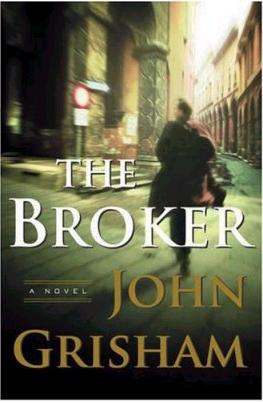
Espionage Books set in Italy
(Also see my Mysteries
page)
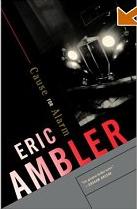 Cause
for Alarm by Eric Ambler
Cause
for Alarm by Eric Ambler
A bit naive, Marlow is rather easily sucked into the cloak and dagger
intrigue endemic to that time and place and rather unfortunately incurs
the wrath of Mussolini's secret police.
 The Broker
The Broker
by John Grisham
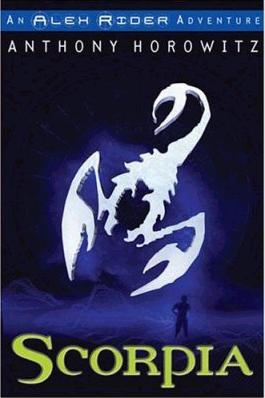 Scorpia
Scorpia
by Anthony Horowitz
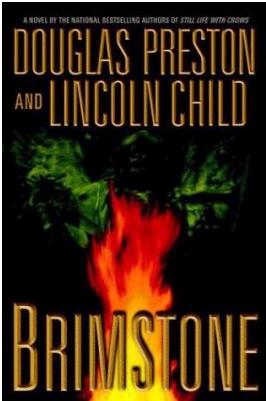 Brimstone
Brimstone
by Douglas Preston and Lincoln Child
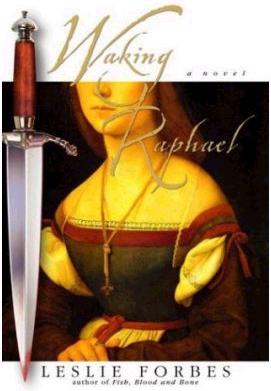 Waking Raphael
Waking Raphael
by Leslie Forbes
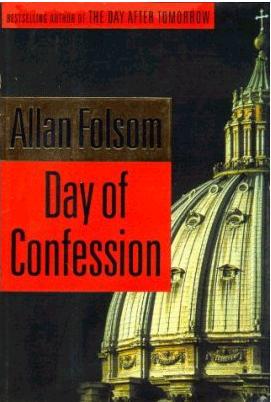 Day of Confession
Day of Confession
by Allan Folsom
Suspense / Dramas set in Italy
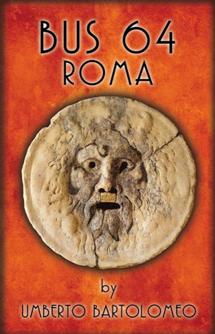
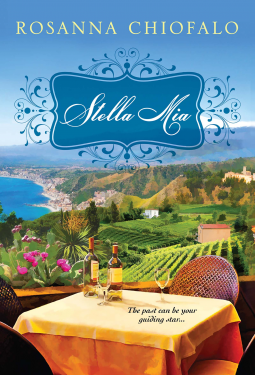
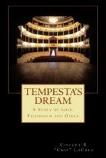
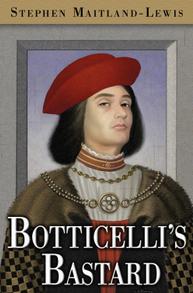
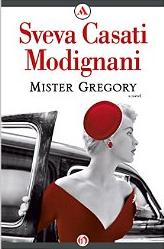
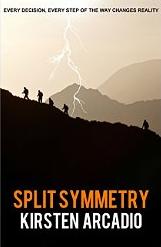 Split
Symmetry by Kirsten Arcadio
Split
Symmetry by Kirsten Arcadio
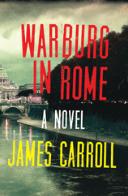 Warburg
in Rome by James Carroll
Warburg
in Rome by James Carroll
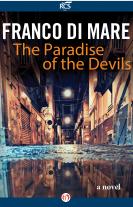 Paradise
of the Devils by Franco di Mare
Paradise
of the Devils by Franco di Mare
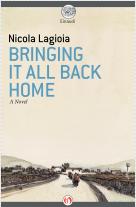 Bringing
It All Back Home by Nicola Lagioia
Bringing
It All Back Home by Nicola Lagioia
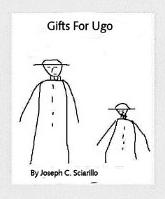 Gifts
for Ugo by Joseph C. Sciarillo
Gifts
for Ugo by Joseph C. Sciarillo
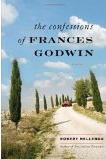 The
Confessions of Frances Godwin by Robert Hellenga
The
Confessions of Frances Godwin by Robert Hellenga
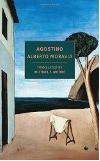 Agostino
by Alberto Moravia
Agostino
by Alberto Moravia
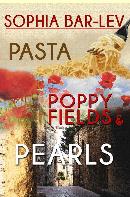
Kindle and Paperback
Editions
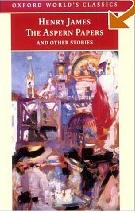
James had an uncanny ability to make that world come alive, bringing you
into its subtleties and rites, while at the same time taking you behind
the elegant façade to expose the aggression, cupidity, and naked power
politics that lurk just beneath the impeccable manners. Our narrator
wants the papers; the mistress wants money for her niece, and the niece
... well, order this book and read on to find out. You won't be
disappointed--it's one of James's best.
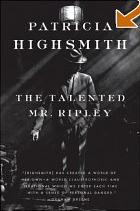 The
Talented Mr. Ripley by Patricia Highsmith
The
Talented Mr. Ripley by Patricia Highsmith
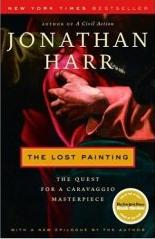
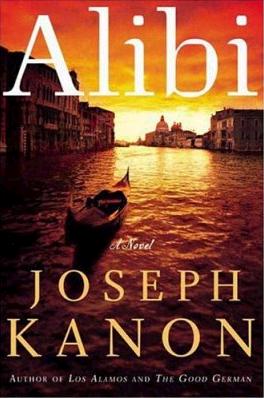 Alibi
Alibi
by Joseph Kanon
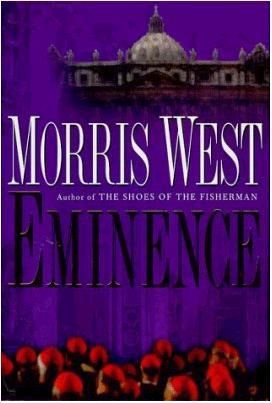 Eminence
Eminence
by Morris West
.
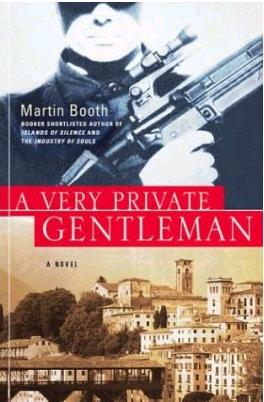 A Very Private Gentleman
A Very Private Gentleman
by Martin Booth
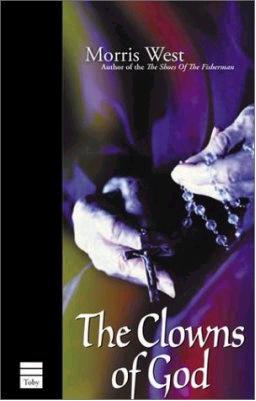 The Clowns of God
The Clowns of God
by Morris West
Crime Novels Set in
Italy
(See also my
Mystery/Triller Series page)
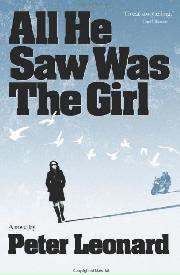
 The
Advocate: A Sardinian Mystery by Marcello Fois
The
Advocate: A Sardinian Mystery by Marcello Fois
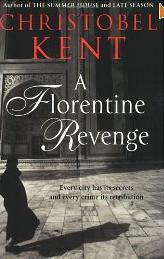 A
Florentine Revenge by Christobel Kent
A
Florentine Revenge by Christobel Kent
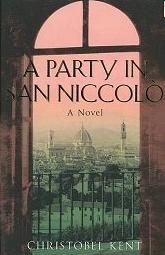 A
Party in San Niccolo by Christobel Kent
A
Party in San Niccolo by Christobel Kent
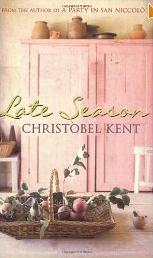 Late
Season by Christobel Kent
Late
Season by Christobel Kent
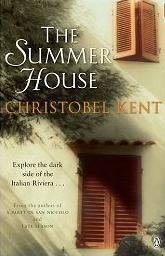 The
Summer House by Christobel Kent
The
Summer House by Christobel Kent
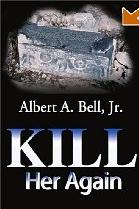 Kill
Her Again by Albert A. Bell, Jr.
Kill
Her Again by Albert A. Bell, Jr.
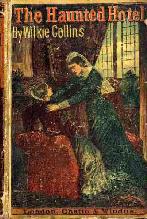
Direct link to free
e-books of The Haunted Hotel
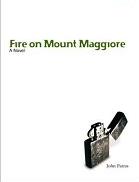 Fire
on Mount Maggiore by John Parras
Fire
on Mount Maggiore by John Parras
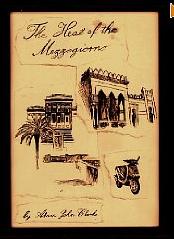 This Kindle book is by a site visitor:
The Heat of Mezzogiorno by Adam John Clarke
This Kindle book is by a site visitor:
The Heat of Mezzogiorno by Adam John Clarke
Discover the story of two aged friends who come together one last time
to embark on a marathon of piggish gluttony, intoxicated drinking and
hearty debate. Friends in a former life, both have soared to dangerous
heights in their chosen elite but they brandish their teeth from
opposing ends of the political spectrum. This final meeting is the last
chance. While the peasants inhabiting the local town of Poggiardo go
about the banality of their daily lives, an epic trial that could
ultimately change the course of history is in motion.
‘A gluttonous indulgence of Southern Italian culinary delights’
‘The banter of political philosophers said while gorging on the fruits
of proletarian labour’
‘Idyllic landscapes inspired by the Old Testament’
The acclaimed debut novel by Adam John Clarke
Amazon.com for paperback (11.99$) and
large-type paperback (14.99$) and mobi-Kindle (3.99$ in U.S.)
CreateSpace for paperback (9.99$ with code
AHY2J7GU) and large-type paperback (12.99$ with code AHY2J7GU)
is available from Amazon.com